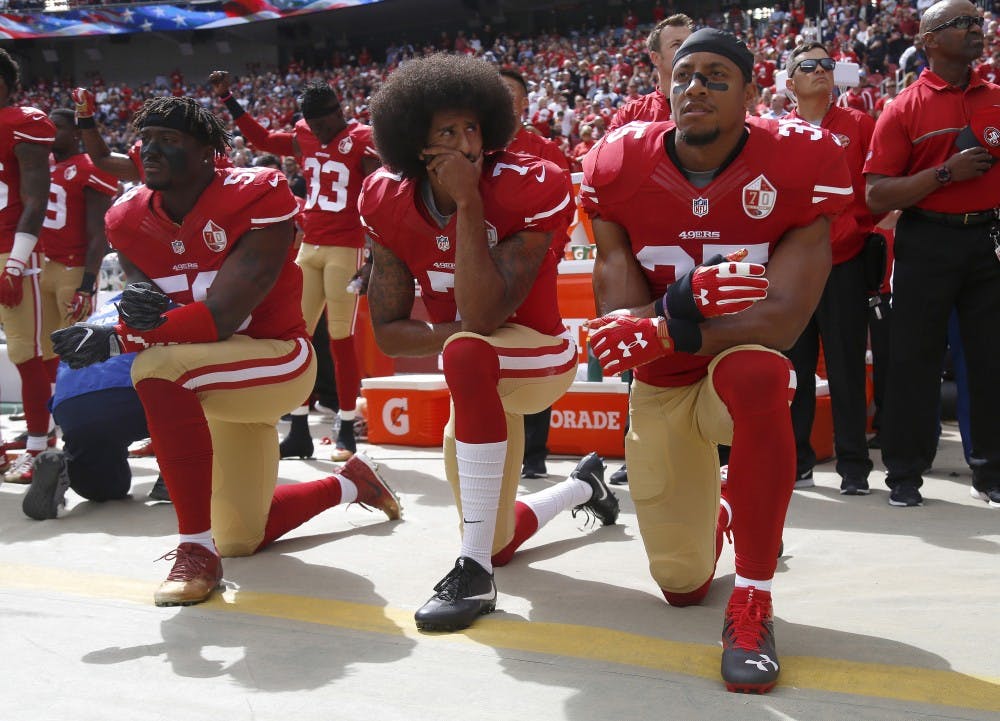Until recently, the majority of professional athletes have stuck to their day jobs: playing sports. But with the recent polarization of the political atmosphere, some athletes are beginning to take public stances on politics as well, using their status to promote particular political opinions.
While athletes are certainly influential, some University of South Carolina students believe that professional sports organizations should not be politicized.
Second-year sports management major Sam Sheusi said he agrees with the concept of freedom of speech, but is wary about the power an entire organization like the NFL can have on public political opinion.
“With the whole standing up for the National Anthem and stuff, I think they should be able to have their freedom of speech and do whatever they want, if they want to kneel or not," Sheusi said. "But when I see the NFL as a whole trying to influence their views, I don’t know if that’s the right decision."
Millions of people tune in to watch big sports events like the NFL every week. And because of that, some polling experts say it is very likely that voters will not only see, but also be influenced by, star athletes making very public political statements.
Some instances have grabbed headlines for extended periods of time. In 2016, San Francisco 49ers quarterback Colin Kaepernick began kneeling for the National Anthem, starting a long series of silent protests against inequality and social injustice in the United States.
In response, the country erupted into mixed reactions. Some people praised the protests as bringing awareness to political issues facing the country. Others called them unpatriotic and disrespectful to the National Anthem and the country itself. Whether athletes should be involved in politics has since made its way onto the ever-growing list of political disputes.
In the end, though, regardless of whether or not the country likes it, athletes are finding ways to insert themselves into the political arena, using their status to promote certain ideas. Some students believe athletes should be doing even more with politics, given their elevated status as important and influential people in society.
“You have a platform that’s there. You should be able to use it. Not everyone else has that platform,” said first-year journalism major Jacob Gamble. “People that are being shot in the streets or in their churches or in synagogues don’t have that kind of platform. So, you have it, you have a captive audience watching. Use it.”
As seen with Kaepernick, when an athlete takes a stand, they have the ability to get the entire nation talking. On the other hand, some students would like to see sports and politics re-establish the relationship they once had most of the time, where they didn’t intersect.
“I think they can (get involved with politics), but not in an athletic setting. I think that’s not really the appropriate place for politics,” stated first-year global studies majorSidney Mullican.

